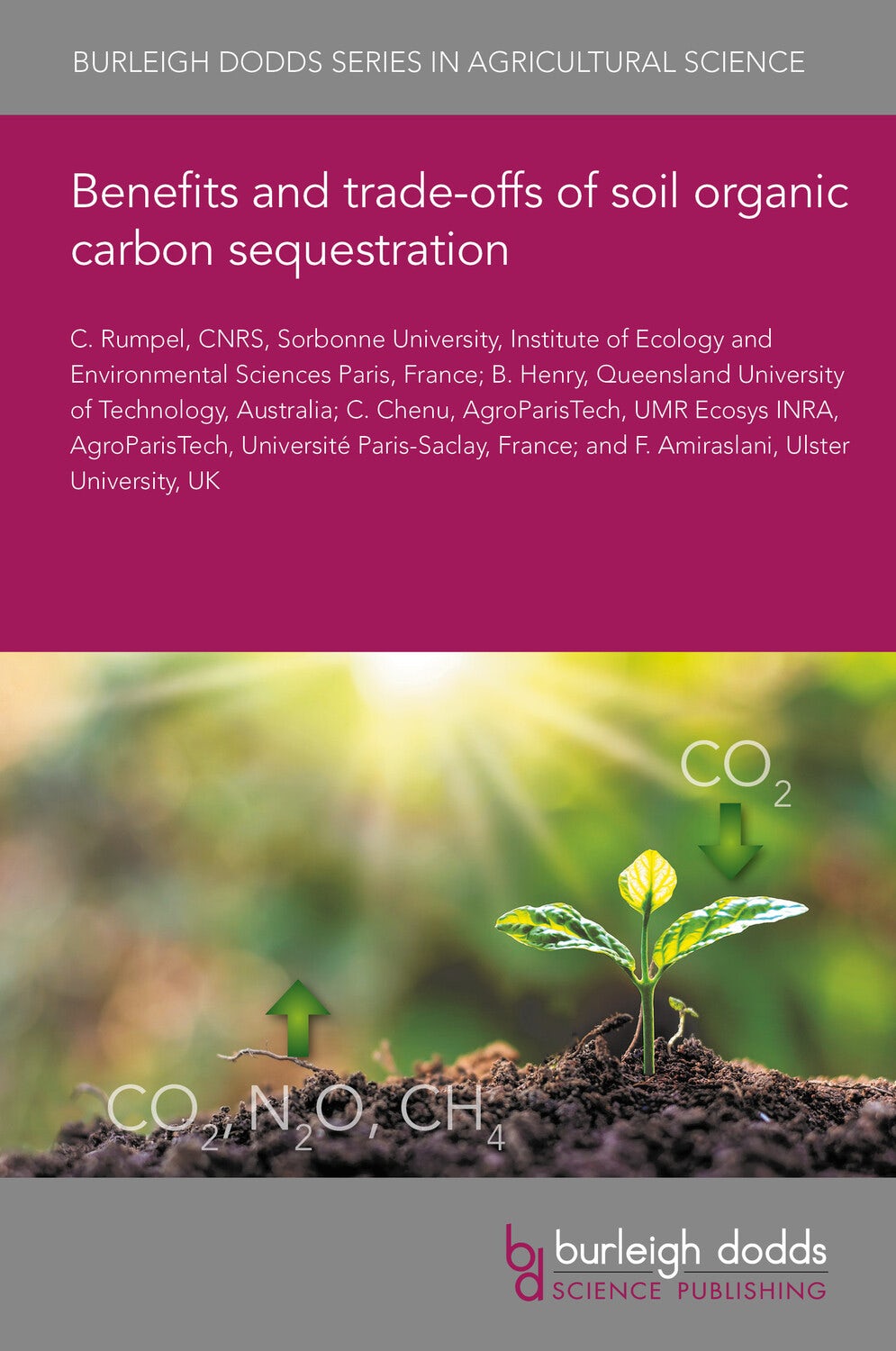We're sorry. An error has occurred
Please cancel or retry.
Benefits and trade-offs of soil organic carbon sequestration
Regular price
£0.01
Sale price
£0.01
Regular price
£0.00
Unit price
/
per
Sale
Sold out
Re-stocking soon
Soil organic carbon sequestration has received increasing attention due to the important benefits it can have for ecosystem services and in particular food production, climate change mitigation and...
Read More

Some error occured while loading the Quick View. Please close the Quick View and try reloading the page.
Couldn't load pickup availability
- Format:
-
07 November 2022

Soil organic carbon sequestration has received increasing attention due to the important benefits it can have for ecosystem services and in particular food production, climate change mitigation and adaptation. Indeed, soils rich in organic carbon are, in general, more fertile and support plant growth better than carbon-depleted soils. On the other hand, management practices applied to increase soil organic carbon may have trade-offs in terms of nutrient and water requirements and greenhouse gas emissions. In this chapter, we present the biophysical and socioeconomic benefits and trade-offs of soil carbon sequestration and show that they are specific with regards to different organic matter types. We present quantitative studies demonstrating these effects with a particular focus on trade-offs in the form of greenhouse gas emissions from agriculture, and conclude that these are crucial to accurately evaluating soil organic carbon sequestration and its contribution to climate change mitigation and other ecosystem services.

Price: £0.01
Publisher: Burleigh Dodds Science Publishing
Imprint: Burleigh Dodds Science Publishing
Publication Date:
07 November 2022
ISBN: 9781801466974
Format: eBook




